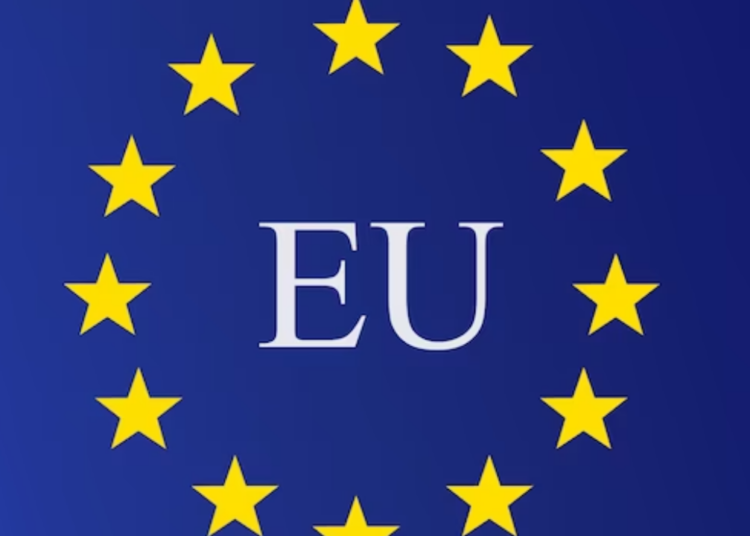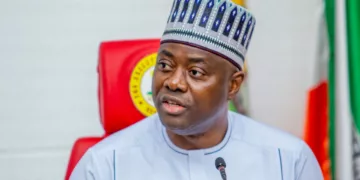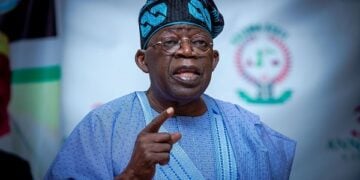European Union Election Observation Mission (EU EOM) to Nigeria’s 2023 general election has decried the obstruction and use of organised violence by thugs serving varied political interests to stop voters from expressing their free will during last Saturday’s governorship and state houses of assembly elections.
European Union chief observer, Barry Andrews, said this yesterday in Abuja, while presenting the Mission’s second preliminary statement on the process of the election across states of the federation, adding that Lagos and Kano states were the most hit by violence during the polls. He also noted that vote buying was witnessed in some parts of the country.
“Lagos, Kano and other states in the southern and central part were most affected. Unfortunately, there were many casualties and fatalities. Vote-buying, also directly observed by EU EOM observers, further detracted from an appropriate conduct of the elections,” Andrews said.
He said although the Independent National Electoral Commission (INEC) introduced some corrective measures ahead of Saturday’s polls by a timely delivery of sensitive materials and approved the use of election technology, the electoral body however, lacked transparency.
Andrews recalled that public confidence and trust in INEC were severely damaged on February 25 due to lack of transparency and operational failures in the conduct of the presidential and National Assembly elections even as he stressed that the polls revealed systemic weaknesses in the country. The Mission also tasked the country to work hard to address the challenges confronting the electoral system in the country in the future.
He said, “Voting started on time with INEC ad-hoc officials present and ready to serve the voter, however, polling on election day was disrupted by multiple incidents of thuggery and intimidation of voters, polling officials, observers, and journalists.
“Campaigns in state elections were competitive, fundamental freedoms of assembly and movement were largely respected. However, insecurity impeded the canvass for votes in certain parts of the country and organized violent attacks shortly before the elections in several states led to a fearful atmosphere. Some state governors took executive action, negatively affecting the campaign environment,” Andrews said.
He said that EU EOM also observed the misuse of administrative resources, including through various financial and in-kind inducements to voters, giving an undue advantage to the party in power.
He said the protracted deadlines for candidacy disputes created uncertainty for voters and electoral contestants alike, while clear underrepresentation of women as candidates demonstrated a stark lack of internal party policies to support constitutionally prescribed inclusion, also contrary to Nigeria’s international commitments to eradicate discrimination against women.
The mission commended the civil society, media, and fact-checkers commitment to promote democratic standards, as shown between the elections by raising awareness and providing electoral information of public interest to voters, by organising debates and by striving to preserve the integrity of the online space.
The EU chief observer added that the deployment of more than 10,000 citizen observers on election day positively contributed to the transparency of the elections.
The second preliminary report of the EU EOM Nigeria 2023 supplements the first report on 27 February. The mission has been present in Nigeria since 11 January and will continue to observe post- election developments. The EU EOM will present and publish its final report, including recommendations for improving the electoral framework in the next few months.




